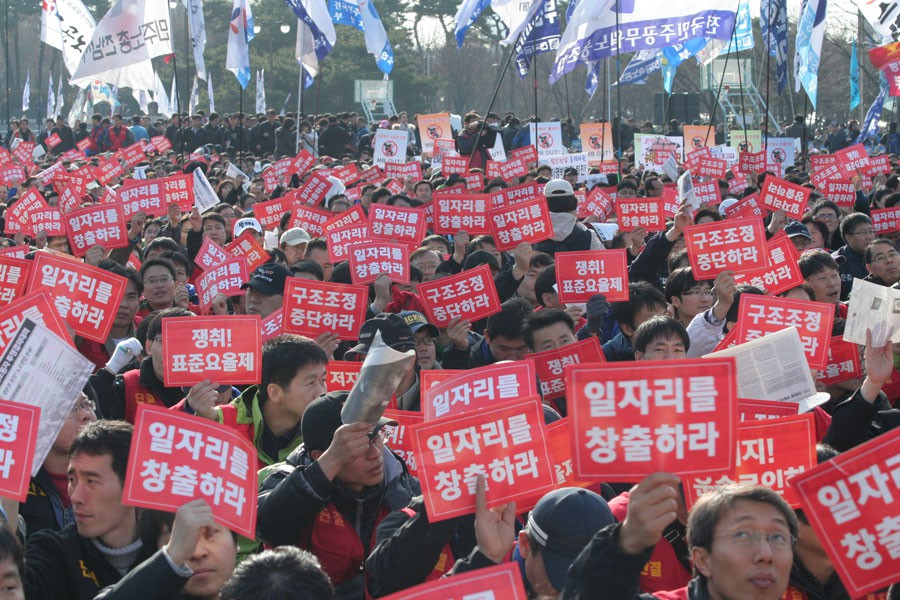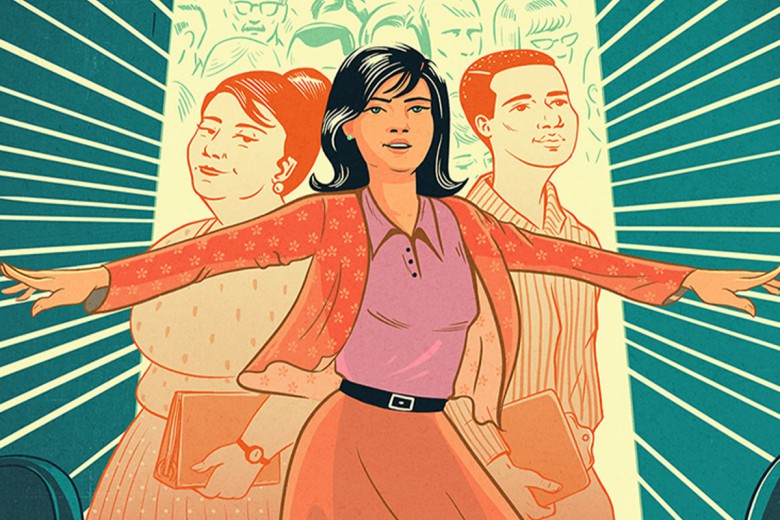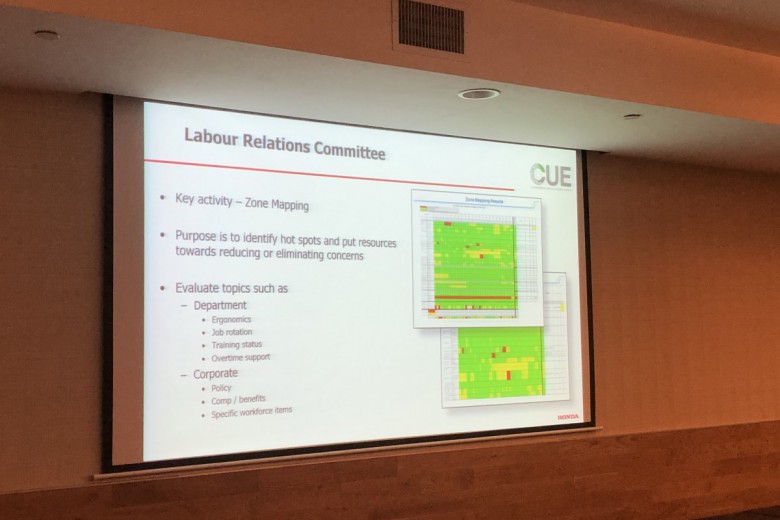
On May 2, 2009, Korean police apprehended Torna Limbu and Abdus Sabur. The arrests were separate but connected. Both men had long been active in South Korea’s Migrants’ Trade Union and had just been elected to the respective positions of president and vice-president. That evening, as they made their ways home from the union meeting, they were taken into custody and eventually deported.
South Korea’s export-led economy has been hard hit by the global economic crisis, and the country’s migrant workforce has made a particularly easy target for politicians looking for scapegoats. South Korea has historically been ethnically homogeneous and has had a tepid relationship with outsiders even in prosperous times; during times of hardship, these workers face even greater scrutiny and discrimination.
The South Korean government’s first measure in its crackdown on migrant workers, most of whom come from Southeast Asia and the Indian subcontinent, was to slash the number of permits to be granted to foreigners who enter on the country’s E-9 and H-2 visas (for unskilled and semi-skilled workers, respectively). The number of permits was cut from over 100,000 in 2008 to just 34,000 in 2009. By June 2009, all 34,000 visas had been issued, creating a labour shortage in the construction and manufacturing industries.
The government then introduced an incentive system for firms that fire migrant workers and replace them with Koreans. A bonus of 1.2 million Korean won ($1050) is given for each fired migrant. According to Young-sup Jeong of the Migrants’ Trade Union, “It’s a racist policy meant to target the vulnerable. Migrants had been getting fired without notice, just showing up at work one day and told that the boss didn’t need them anymore.”
The Migrants’ Trade Union has never been granted formal union status under South Korean law and thus has never enjoyed the legitimacy and benefits that union status provides. Their application was denied in May 2005. An appeal is currently pending in the country’s Supreme Court.
The court battle, says Jeong, “has been made more difficult by the right-wing government. They’ve intentionally delayed the decision.”
South Korea has a strong union culture. The global economic crisis had a markedly different effect on the government’s dealings with South Korean unions than with foreign workers. While Korean and foreign workers made similar demands for stability and ethical treatment, one group was listened to and the other brushed aside. South Korean labour groups argued that the hardships accompanying the global downturn would require the government to take a more active role in legislating fair standards of employment.
The current paucity of permanent positions being protested by Korean unions has its roots in the last financial crisis to hit East Asia. As the economies of East Asia slumped in the late 1990s, the South Korean government introduced more temporary positions in an attempt to jump-start growth, moving away from the permanent positions common in the region. The effect of these changes, though, has been to limit access to stable employment and heighten inequality. These changes were implemented in spite of strong opposition from union groups, which continue to demand that they be reversed.
Under pressure to create more permanent positions, the ruling Grand National Party has negotiated extensively with opposition parties and the country’s leading unions to reach an agreement on a measure to improve conditions for irregular (Korean) workers. A proposed measure that would require companies to make temporary workers permanent after two years is pending and expected to pass.
The government also plans to offer cash incentives to small and medium-sized firms who make workers permanent. Irregular workers who are fired can appeal their termination with a number of government committees and seek unemployment protection. Foreign workers, however, would be privy to none of these benefits.
Limbu and Sabur are now back in their respective home countries of Nepal and Bangladesh. Both have chosen to remain home rather than attempt a return to Korea. In their absence, their former co-workers continue to struggle as the fallout from the economic crisis continues. According to Jeong of the Migrants’ Trade Union, “Our only choice in this situation is to build solidarity and together ask who is really responsible for the economic crisis and demand our jobs and improvement of our working conditions.”





_780_520_90_s_c1.jpg)
